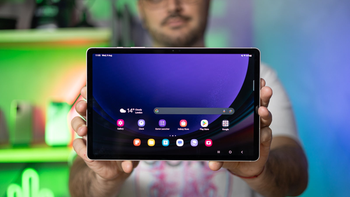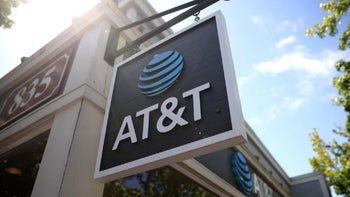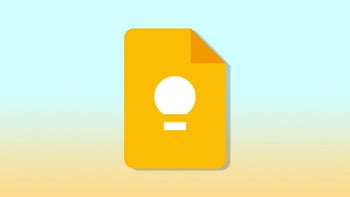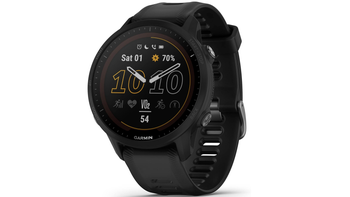Google's unified Privacy Policy and the rise of intelligent push

Privacy policies are one of the most hated things on the Internet. They are constantly misunderstood, and made the scapegoats for many different problems that may not be related. They are also the hiding place for many of the shadier data collection policies around, so there is definitely a reason for some of the hatred.
Google announced yesterday that it is unifying over 60 of its myriad product privacy policies into one simplified policy that will cover almost all Google products, with the notable exceptions of Chrome, Wallet and Books. Of course, this has caused a mini uproar from users who seem to misunderstand how this all works. The part that people seem to have a problem with is the fact that under the unified policy, Google will be allowed to share your data with you. That sounds pretty terrible, right?
The idea is that because the privacy policies will be unified Google will be able to share your data between different services like YouTube, Search, Gmail and Calendar in order to give you more relevant information and alerts. Google uses the example of knowing the difference between a jaguar (animal) and a Jaguar (car) in a search, or letting you know if you're going to be late based on your GPS, your Google Calendar appointments and local traffic information. All of that sounds pretty good. We've been waiting for Google to leverage all of the information that it has to offer better location-based information, and personalized experiences.
The benefits: better results and intelligent push
These sorts of personalizations have an incredibly wide array of possibilities. Just using a user's search history and web history alone is an incredible amount of data concerning what a user wants to know, wants to buy, where they visit, etc. When you add in products like Calendar, YouTube, Google+, News, Music, Books, etc. that is a daunting amount of information. And, of course there are two major feeding systems for these services, and two different targets for new Google's new efforts in intelligent push. Intelligent push being sort of like information guided serendipity, or effectively the opposite of search. Intelligent push isn't information that you know you want and you search for, it's information that a service or company, in this case Google, knows matches your interest, and so it is pushed to you.
On one side of the feeding system, there is what we'll refer to as "The Web", which includes everything you do in a more traditional browser, and on the other side is Mobile, which will obviously include mobile versions of products either as web apps, OS apps, or Android system functions. Google does come right out and state that it will be using all of this data to serve better ads to all users. There will be some benefits to users of the Web like more relevant results and ads, more personalized recommendations across products including Music, Books, News, and YouTube, and easier sharing between products. However, the bulk of the benefits will be seen by Mobile users, and more than likely Android users specifically. All of the benefits for Web users should apply across mobile platforms, and we expect that certain mobile apps for other platforms like Google Search, Google+, etc will be seeing benefits from this new policy. However not surprisingly, more than any other platform Android will see far more of the new features that spawn from this new policy as any other set. This is because Android has the added benefit of knowing your location at all times (assuming you've turned on location services), and that is the special sauce that opens up so many more options when you mix in all of the other data Google has at its disposal and offers far better intelligent push.
This includes the example given by Google, where it will be able to alert you if you are going to be late for a meeting, but it also opens up incredible amounts of serendipity. For example, knowing your search history, media consumption history, purchases and content sharing, Google can make up a pretty solid picture of what you like, what interests you, and what you may want or need. Google may know that you like a certain type of clothing, and that you have been searching for jeans recently, and notify you when you are near a store with a sale. Google may know that you read a lot of John Hodgman books, and alert you when you're wandering by a book signing. There is an incredible number of ways that these sources of data can be used that go beyond serving more relevant ads or search results and can lead to situations through mobile that makes Augmented Reality apps look positively outdated.
The real changes and value come from the various examples that we outlined in the paragraph above, but all of those fall into the same category: passive intelligent push of data. Google has always been the company that people go to when looking for something, but more an more it is pushing towards being the company that will not only give you the most relevant data when you search for something, but the source that knows you well enough to be able to recommend things throughout the web, but also, possibly more importantly, in the real world as well. Surfacing a story about basketball that may interest you is one thing, but letting you know that your favorite athlete has been spotted by Google+ users at a bar in your area is a very different thing altogether. The difference is that there are a lot of things that we may not know to search for, many things that could be interesting or exciting as well as just simply helpful results. It could be something as simple as your Google Calendar having a travel event, and Google pushing your flight info, any possible delays, and weather to expect to you. Or, perhaps it could be that Google knows that you follow a lot of great photographers, and it can alert you when you walk near the location of one of your most viewed photos.
The trouble spot: control
Of course, there is one annoying thing about the policy as it exists right now, which is that the data collection and mixing is automatic and opt-in by default, and the only way to opt-out is to close your Google account before March 1st, when the new policies take effect. There are ways to control how and when certain data is collected via your Google Dashboard, and it is possible to turn off things like Web History or Search History. Unfortunately, while these controls do exist, they can be difficult to find, and although Google Dashboard brings together some of the options needed, you would still need to go into each Google product individually to control the data collected, if that option even exists.
There are also no controls right now to allow the user to include or exclude various products into the new Google sauce recipe. All of the data may be pulled together in order to give you better results, but just like the noise control in Google+, personalization options need controls as well. As we saw with Google+, if you followed too many people or had circles of people that you didn't want included in the main Stream, that option wasn't available at first, but Google added it after complaints by users. Unfortunately, those same controls were not extended to Google's new Search Plus features, which adds unwanted personalization to search results. Until those controls are added, there is a good chance that will lead to unwanted personalization and results with the mixing of data from various Google products.
It seems likely that Google will eventually add these sorts of controls as it has done in the past, but it is disappointing that rather than wait until those controls were in place, Google is launching this initiative early.
Conclusion
The biggest trouble with this is not that Google is collecting your data, or that it is using that data in new ways, the trouble with this announcement is that it reminds people that this data collection is going on. People still aren't fully aware of the sheer amount of data that they share explicitly and inadvertently through all of these Google products. Of course, the Internet is just making things we've already done all the time more efficient and transparent. People may not realize that signing up for a rewards card at a store is the same as trading your home address for advertising (in the form of flyers), and may never really see that connection. But, on the Internet, when Google shows you something in Search that it learned in a different product, that scares people because the connection is more apparent and the consequences of their actions are more transparent.
And, beyond that, people still aren't fully on board with the idea that all of these products, which had been relatively disconnected until fairly recently, are under the Google umbrella and that Google has all of the data from all of these services. Google has been pushing to create a more consistent UI across its products and bring more integration, but pulling over 60 products under one Privacy Policy is a big move and there are bound to be unintended consequences, especially when mixing location data from your mobile device into the various results and personalizations. Perhaps this is why Andy Rubin said that he didn't think your phone should be a personal assistant, because it shouldn't be your phone, it should be Google as a whole that is your personal assistant.
The trick is always to demonstrate the value to users while reassuring the fears. Google has tried hard in the intro video for the new privacy changes to be clear that your data will still be private, and will only be shared with other products that you are using, which is a good start there. People are very sensitive when it comes to the nebulous idea of private data, and Google has done well to put what that exactly is into plain language in the new policy as well. The trouble is in demonstrating the value. Knowing that someone may be late based on GPS, Calendar events and traffic info is good, but predicting that and routing the person around the traffic to be on time is better. Knowing the difference between a search for jaguar the animal and Jaguar the car is also good, but alerting someone about a nearby car show where they could check out some Jaguars is better. Unfortunately, every one of those alerts is a reminder that Google has a lot of information on each of us.
We tend to trust Google, because as of yet the company has made choices that are largely beneficial to the user. So, we'd like to fall on the side of being optimistic about this new unified Privacy Policy and the new possibilities that it holds. Of course, that doesn't mean that we stop being careful and watching out for anything amiss. And, it doesn't mean that we have to accept a product that doesn't have sufficient controls built-in, regardless of whether it is part of Google's "release early, iterate often" philosophy. We want these cool new features, but we want the basics to be ready for launch.
source: Google Blog
Google's new simplified privacy policy is remarkably simple and easy to read. We're hoping more companies take a lesson from this and make their policies easier to read. Google breaks down your data into two main groups: information you explicitly give to Google, like that you input when filing out your profile or signing up for service, and information from your use of Google products, like search history, calendar events, app downloads, etc. From there, your data is broken up into how and why your information is shared.
These sorts of personalizations have an incredibly wide array of possibilities. Just using a user's search history and web history alone is an incredible amount of data concerning what a user wants to know, wants to buy, where they visit, etc. When you add in products like Calendar, YouTube, Google+, News, Music, Books, etc. that is a daunting amount of information. And, of course there are two major feeding systems for these services, and two different targets for new Google's new efforts in intelligent push. Intelligent push being sort of like information guided serendipity, or effectively the opposite of search. Intelligent push isn't information that you know you want and you search for, it's information that a service or company, in this case Google, knows matches your interest, and so it is pushed to you.
The real changes and value come from the various examples that we outlined in the paragraph above, but all of those fall into the same category: passive intelligent push of data. Google has always been the company that people go to when looking for something, but more an more it is pushing towards being the company that will not only give you the most relevant data when you search for something, but the source that knows you well enough to be able to recommend things throughout the web, but also, possibly more importantly, in the real world as well. Surfacing a story about basketball that may interest you is one thing, but letting you know that your favorite athlete has been spotted by Google+ users at a bar in your area is a very different thing altogether. The difference is that there are a lot of things that we may not know to search for, many things that could be interesting or exciting as well as just simply helpful results. It could be something as simple as your Google Calendar having a travel event, and Google pushing your flight info, any possible delays, and weather to expect to you. Or, perhaps it could be that Google knows that you follow a lot of great photographers, and it can alert you when you walk near the location of one of your most viewed photos.
Of course, there is one annoying thing about the policy as it exists right now, which is that the data collection and mixing is automatic and opt-in by default, and the only way to opt-out is to close your Google account before March 1st, when the new policies take effect. There are ways to control how and when certain data is collected via your Google Dashboard, and it is possible to turn off things like Web History or Search History. Unfortunately, while these controls do exist, they can be difficult to find, and although Google Dashboard brings together some of the options needed, you would still need to go into each Google product individually to control the data collected, if that option even exists.
There are also no controls right now to allow the user to include or exclude various products into the new Google sauce recipe. All of the data may be pulled together in order to give you better results, but just like the noise control in Google+, personalization options need controls as well. As we saw with Google+, if you followed too many people or had circles of people that you didn't want included in the main Stream, that option wasn't available at first, but Google added it after complaints by users. Unfortunately, those same controls were not extended to Google's new Search Plus features, which adds unwanted personalization to search results. Until those controls are added, there is a good chance that will lead to unwanted personalization and results with the mixing of data from various Google products.
Conclusion
The biggest trouble with this is not that Google is collecting your data, or that it is using that data in new ways, the trouble with this announcement is that it reminds people that this data collection is going on. People still aren't fully aware of the sheer amount of data that they share explicitly and inadvertently through all of these Google products. Of course, the Internet is just making things we've already done all the time more efficient and transparent. People may not realize that signing up for a rewards card at a store is the same as trading your home address for advertising (in the form of flyers), and may never really see that connection. But, on the Internet, when Google shows you something in Search that it learned in a different product, that scares people because the connection is more apparent and the consequences of their actions are more transparent.
And, beyond that, people still aren't fully on board with the idea that all of these products, which had been relatively disconnected until fairly recently, are under the Google umbrella and that Google has all of the data from all of these services. Google has been pushing to create a more consistent UI across its products and bring more integration, but pulling over 60 products under one Privacy Policy is a big move and there are bound to be unintended consequences, especially when mixing location data from your mobile device into the various results and personalizations. Perhaps this is why Andy Rubin said that he didn't think your phone should be a personal assistant, because it shouldn't be your phone, it should be Google as a whole that is your personal assistant.
We tend to trust Google, because as of yet the company has made choices that are largely beneficial to the user. So, we'd like to fall on the side of being optimistic about this new unified Privacy Policy and the new possibilities that it holds. Of course, that doesn't mean that we stop being careful and watching out for anything amiss. And, it doesn't mean that we have to accept a product that doesn't have sufficient controls built-in, regardless of whether it is part of Google's "release early, iterate often" philosophy. We want these cool new features, but we want the basics to be ready for launch.














Things that are NOT allowed: